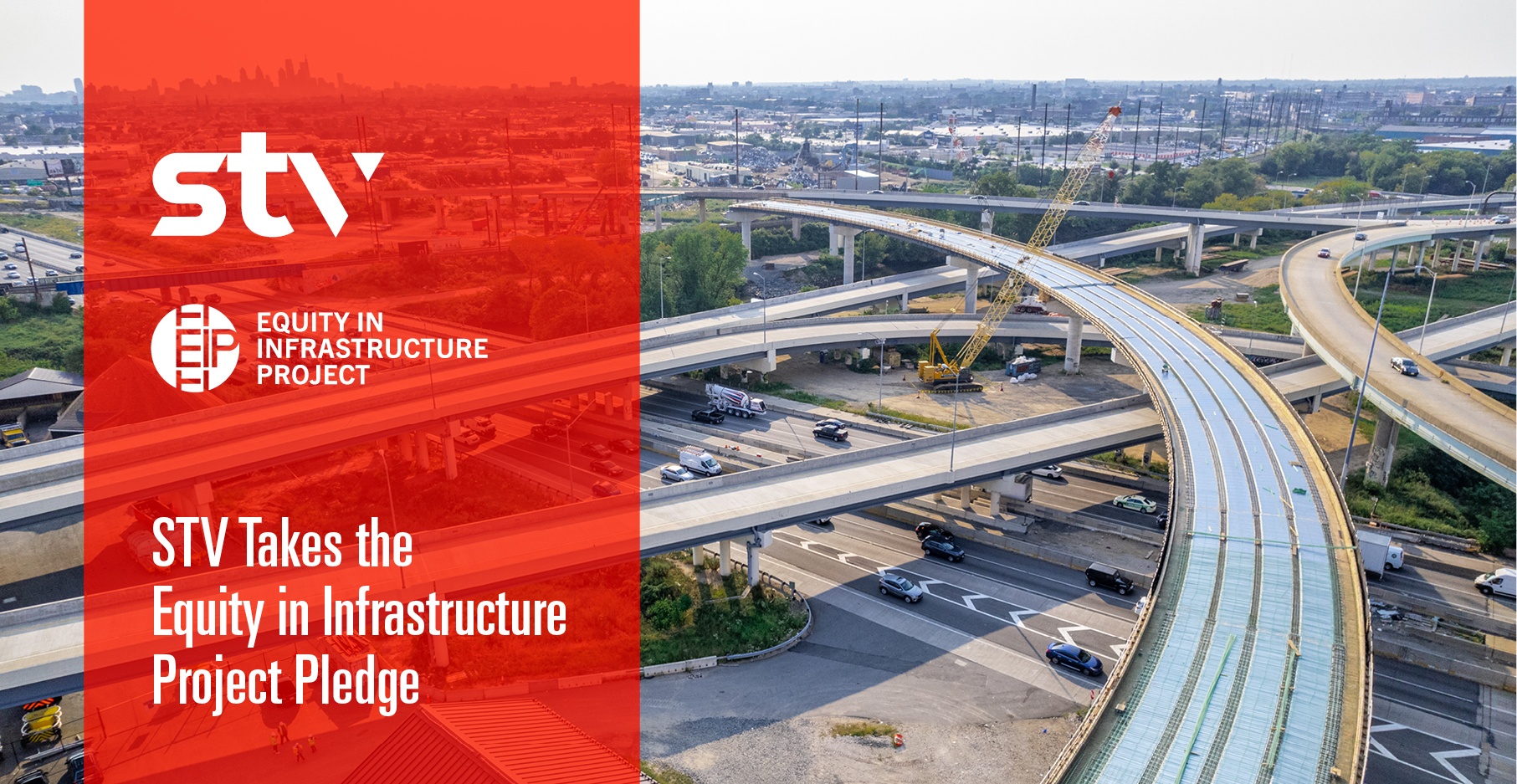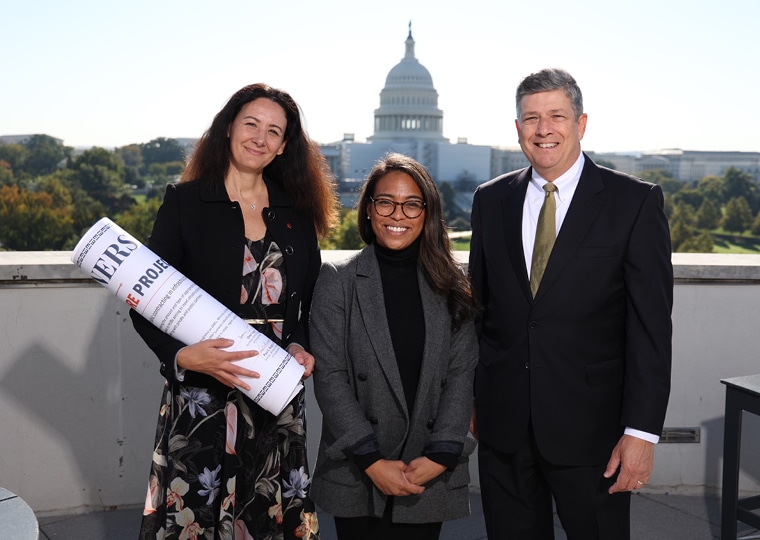NEW YORK, NY – STV, a leader in engineering, architectural, planning and program and construction management services, today announced it has signed the Equity in Infrastructure Project (EIP) Pledge, becoming one of the first architecture, engineering and construction (AEC) firms to commit to advancing equity in infrastructure with a goal of increasing the number, size and percentage of historically underutilized businesses (HUBs) growing to prime contractors, participating in joint ventures or becoming equity participants.
STV is the first AEC firm to commit to the EIP Pledge by enhancing how it will engage with its clients, partners and communities through the following 4-point equity action plan:
1. Growth: Create more opportunities for HUBs by advising clients on how to package contracts to increase the number, value and proportion of both sub and prime contracting opportunities.
2. Efficiency: Streamline administrative processes for HUBs by advising clients how to consolidate or eliminate administrative operations to boost HUB access to projects.
3. Support: Back policy reforms that help build generational wealth for HUBs such as centralizing certification and removing contract value caps.
4. Awareness: Promote, educate and connect clients and industry peers with EIP to raise awareness about the importance of equity in infrastructure and expand the number of signatories to the EIP Pledge.
“The public sector has a tremendous role in driving equity in infrastructure, but that doesn’t mean the private sector has to sit on the sidelines. We must seize this historic moment of generational investment in our country’s infrastructure as an equally historic opportunity to create generational wealth and expand access to sustainable work for those historically left out,” said Greg Kelly, P.E., STV president and CEO. “STV is proud to commit to the Equity in Infrastructure Pledge, and we look forward to working with our clients and our industry peers as we deliver more equitable infrastructure projects in the future.”
“As we make investments in long lasting infrastructure projects, we must choose to be intentional and take concrete action to ensure we also make lasting changes in people’s lives by building generational wealth and closing the racial wealth gap,” said Denver International Airport CEO and EIP Chair and Co-Founder Phillip A. Washington. “We applaud STV for backing up its commitment to equity with action.”
In addition to taking the EIP pledge, STV will hold a seat on the EIP Advisory Council to promote broad industry engagement and commitment.
EIP exists to improve public contracting practices to create more prime, joint venture and equity contracting opportunities for HUBs, with the ultimate goal of reducing the racial wealth gap. Through its Pledge, EIP works to secure commitments from public agencies to increase the number, size and scope of contracts going to HUBs by facilitating access and reducing barriers to compete for business. EIP was founded in anticipation of the $1.2 trillion IIJA and to leverage infrastructure spending to build wealth in underserved communities.
As a leader in transportation and infrastructure, STV has a history of launching and executing unique programs to advance equity in its projects and transform the way the firm does business in its communities. Prior to taking in the EIP Pledge, STV proactively formed a joint venture with Arredondo, Zepeda and Brunz, LLC (AZ&B), a Dallas-based HUB, supporting the multi-billion dollar Dallas Fort Worth International Airport (DFW) Infrastructure Capital Program, which will provide the local, small business a direct pathway to larger projects and contracts in the future. For the Los Angeles County Metropolitan Transportation Authority, STV prepared a first-of-its-kind Gender Action Plan that studied the needs of female mass transit riders in its public transportation system. In addition, on behalf of the Connecticut Department of Transportation, STV is performing a Service and Fare Equity (SAFE) analysis, evaluating rail service and both past and potential future fare changes to determine whether these adjustments are discriminatory or inequitable to people of color or those with low incomes.







